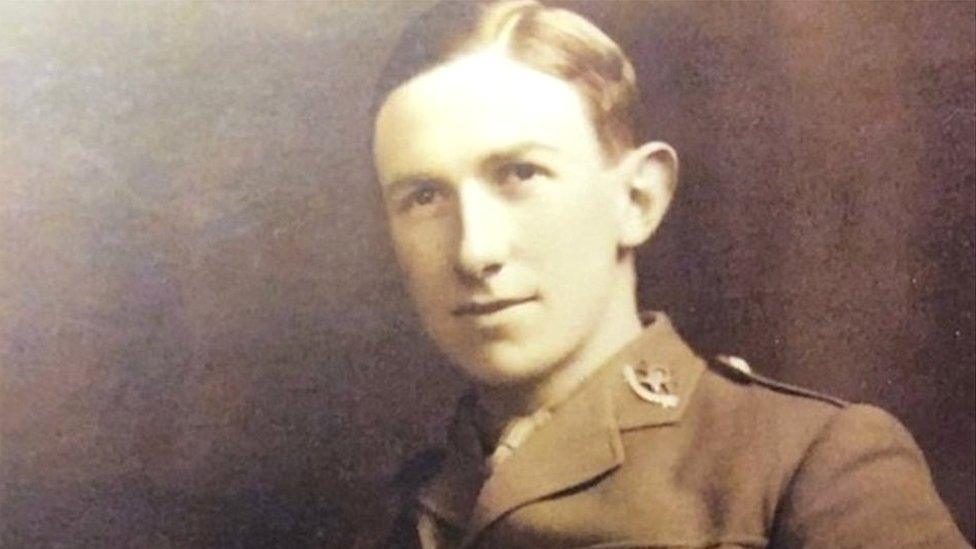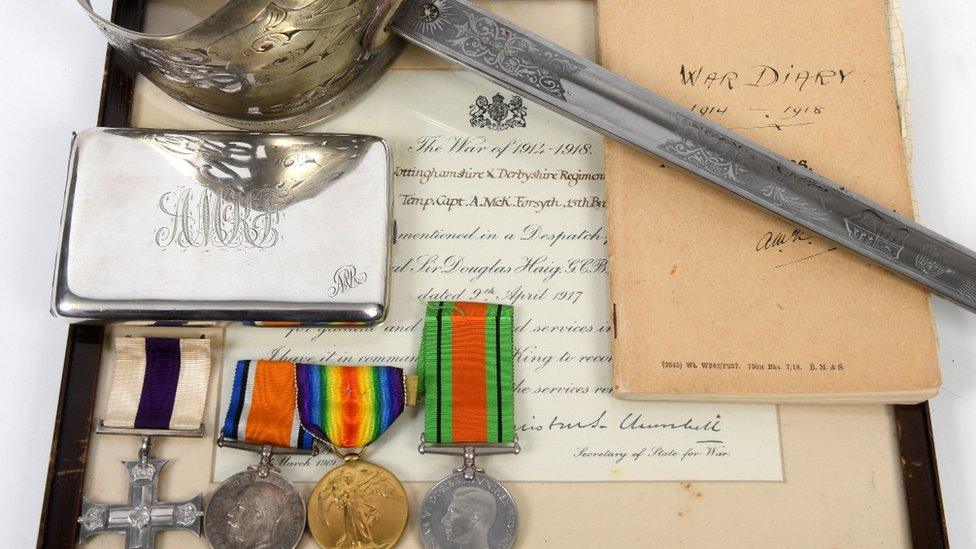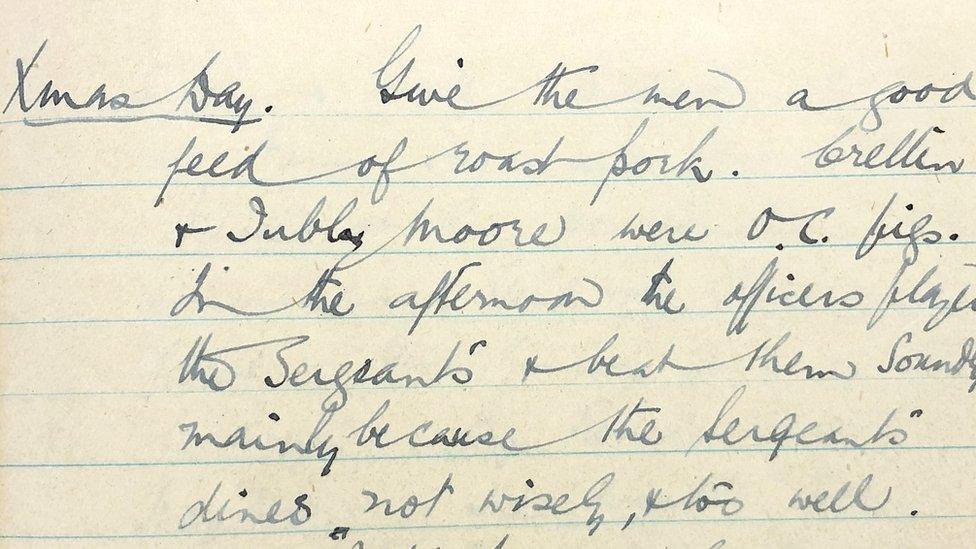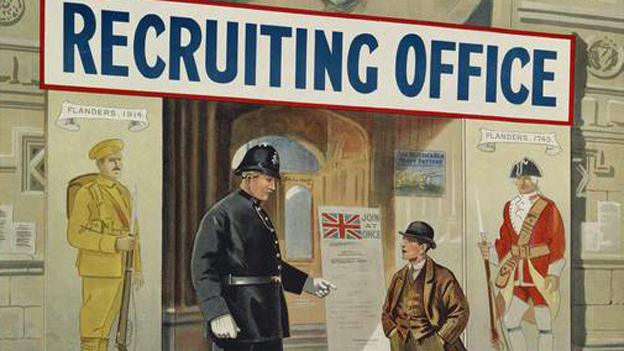Nottingham soldier's war diary goes under the hammer
- Published

Angus McKenzie Forsyth noted "his people" did not share his joy at joining up
The diary of a World War One soldier who won the Military Cross despite his "physical shortcomings" has been sold.
Angus McKenzie Forsyth joined up in Nottingham a month after war started in August 1914 but was apparently concerned about his height.
But he was accepted into the Sherwood Foresters and his diary recorded everything from near misses and Christmas treats.
The diary along with medals, sword and other items, fetched £1,100 at auction.

The collection includes a certificate to mark his Mention in Despatches
Mr Forsyth was born in Nottingham in 1893 and worked as an accountant.
His soldier's diary - something frowned upon by commanders - records on 23 September: "I duly enlisted, and was accepted, despite my physical shortcomings.
"Proudly deported a rosette on my buttonhole. My people did not share my enthusiasm!"
Originally the minimum height for a soldier was 5ft 3ins (160cm) but this was waived later in the war.

Christmas Day was still a cause for celebration, even on the Western Front
On 1 February 1916 he wrote: "We land in France after an interesting crossing….Corporal Godson (?) had the misfortune to break his thigh by slipping on the quay - our first casualty…"
He recorded a 1917 Christmas Day treat of "roast pork" and then the officers "soundly beating" sergeants at an unspecified game because the sergeants had dined "not wisely and too well".
The reality of war is also clear with an entry for 30/31 October 1917 saying: "Colin Bell, a good officer, killed by a shell. Crowds go down with trench feet.
"The Bosche get a direct hit on my pill box, the shell almost coming through the door. I get it in the neck and arm - fortunately only slightly, a piece smashes the butt of my revolver…"
The collection also includes a certificate for mention in despatches and the Military Medal for an attack where "he led his company with great determination, capturing the objective and killing and capturing a large number of the enemy".
The diary ends in November 1917 with him joining a training battalion in England as a captain.
He died in 1956 and the collection was sold by one of his descendants.

Follow BBC East Midlands on Facebook, external, Twitter, external, or Instagram, external. Send your story ideas to eastmidsnews@bbc.co.uk, external.
- Published9 February 2015
